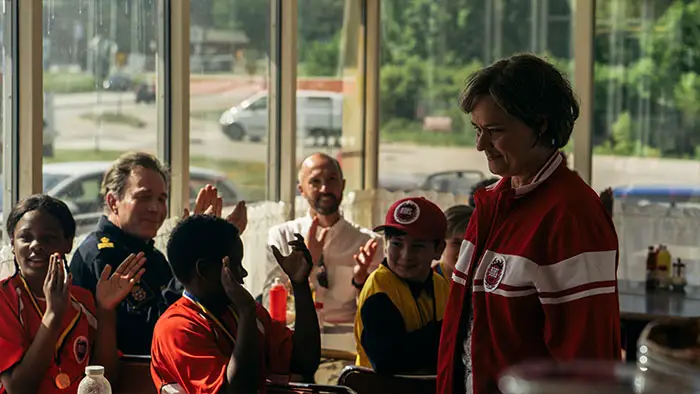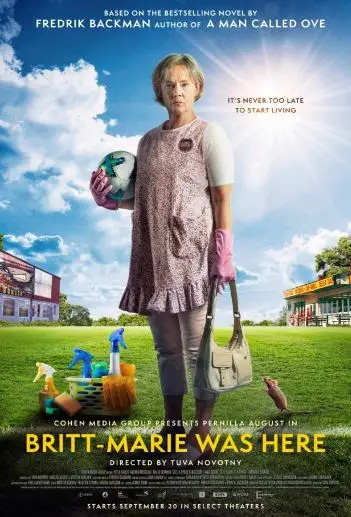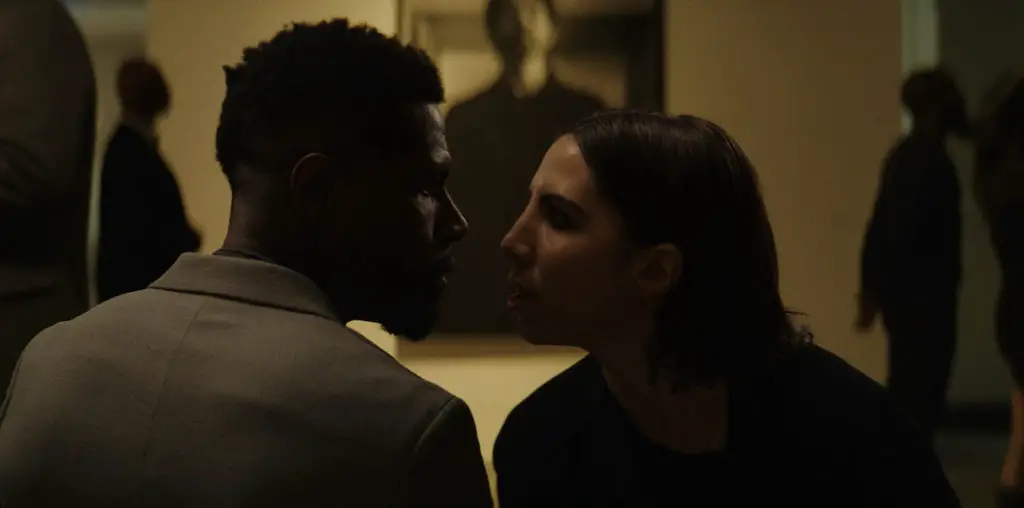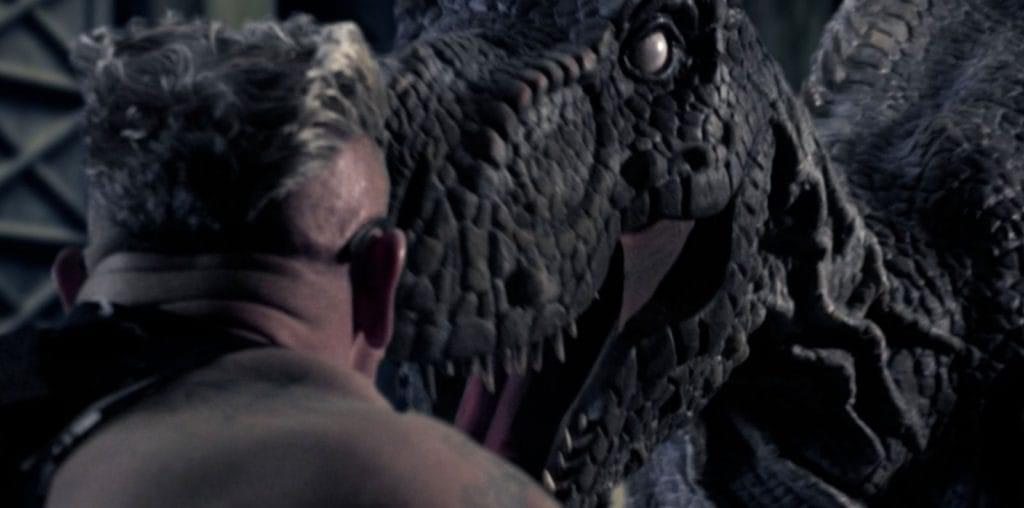
At first glance, Tuva Novotny’s Britt-Marie Was Here looks like a movie that you could get behind. Like the protagonist of the original book, after all, the film’s titular protagonist (Pernilla August) is a 63-year-old woman who’s been a housewife for the entirety of her adult life. To put it another way, she’s the kind of character who challenges the many isms – ageism, sexism, and so forth – that characterize most mainstream films.

“Out of anger and desperation, Britt-Marie leaves him and takes a job: coaching soccer at a youth center in a run-down rural town called Borg.”
Sadly, however, the stifling banality of Britt-Marie Was Here’s narrative quickly destroys whatever promise it initially seems to have. After her husband Kent (Peter Haber) suffers a heart attack, Britt-Marie discovers that he’s been having an affair. Out of anger and desperation, Britt-Marie leaves him and takes a job: coaching soccer at a youth center in a run-down rural town called Borg.
From this point on, the film’s plot neatly fits into the cliché “narrative arcs” that they teach you about in writing 101 classes. Britt-Marie and the youth center kids initially don’t get along, but – in a change that nobody saw coming – they eventually come to love one another. While coaching the kids, moreover, Britt-Marie meets a charming divorcé (Anders Mossling) with whom (lo and behold) she falls in love. And by the film’s end, Britt-Marie has turned from a passive housewife into a determined individualist, a total transformation whose inevitability makes a film like A Star Is Born look novel and unpredictable.

"…challenges the many isms – ageism, sexism, and so forth..."


